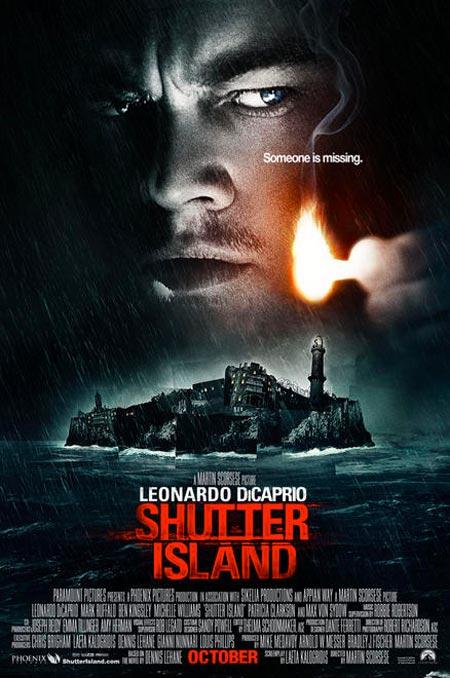Shutter Island too concerned with form even as it shocks
Sat, 05/15/2010
Martin Scorsese makes beautiful films that are sometimes quite good (I’m sorry, but I don’t think “Gangs of New York” has made too many top-ten lists). “Shutter Island” teeters between those two qualities—between exquisitely crafted imagery and compelling entertainment—and it’s hard to put a finger on exactly where the tipping point lies.
Federal Marshal Teddy Daniels (Leonardo DiCaprio) has been dispatched to Shutter Island, a psychiatric prison located off the Massachusetts coast, to help track down a patient who has escaped. The island is an Alcatraz for the criminally insane and Scorsese has constructed it out of some wonderfully creepy details. There’s an old Civil War era fort on the crest of the hill, an abandoned village crumbles along the side of the road and the asylum itself is a sullen oasis of pristine lawns and Victorian brick.
But the landscape is positively perky compared to the characters that inhabit it (and I’m not just talking about the inmates). Ben Kingsley and Max von Sydow make for a sinister pairing as the two doctors who run the institution. Five minutes with them and one wonders where the greatest evil lies: in the past crimes of the inmates or the treatment that is being perpetrated on them. Kingsley is an actor who has always made great use of his eyes. The intensity of his stare and the bottled energy it communicates can be unnerving. In “Gandhi” it made him practically shimmer with saintliness. In “Shutter Island” the look betrays a predatory appetite as he smoothly charms and deflects Daniels’ efforts to get at the truth.
Von Sydow takes his role in the opposite direction. Doctor Naehring, with his German accent and suspected Nazi past, is an old man who has caved in on the void that once contained his soul. He moves slowly with absolute confidence that his quarry can’t escape him.
Marshal Daniels and his partner, Chuck Aule (Mark Ruffalo), soon find that their investigation isn’t just about where the inmate has gone but why she’s missing and who benefits from it. The deeper they get into the maze of the institution, the more they realize that if they learn too much they may never make it back off the island.
Scorsese adds layer upon layer of conflicting motives onto this psychological thriller. As Daniels searches for the woman, he is haunted by dreams of his dead wife, Dolores (Michelle Williams), and we eventually find out that he believes her killer is an inmate on the island.
While the complicated plot is fodder for an impressive array of cinematic flourishes, the story itself seems to get away from Scorsese. He periodically loses sight of its visceral energy and retreats into stagy effects. Scorsese is a director who loves the history of film and “Shutter Island,” set in 1954, is part homage to film noir. Its flow often stutters on heavy beats of melodrama. Scorsese is a lot like Stanley Kubrick in that way. You can tell he is struggling as a storyteller when you find yourself distracted by the virtuosity of his direction.
“Shutter Island” has some scenes that bear a close resemblance to “Silence of the Lambs” (Ted Levine who played the serial killer Buffalo Bill in “Lambs” shows up as the institution’s menacing warden) and it suffers from the comparison. While “Lambs” was driven by a feral current of evil, “Shutter Island” is a little too mannered—a little too concerned with form—even in its most shocking twists and turns.
Directed by Martin Scorcese
Rated R
*** Three Stars


